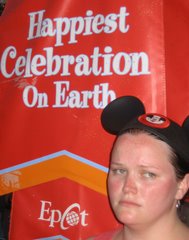
A World of Contradictions
Elora Ramirez
First things first, this is not an attempt to prove to you that I am an expert on Haitian culture and the politics of a country in turmoil. This is an attempt to share, however briefly, the knowledge I gained while experiencing a culture so rich yet so different from my own.
What I know about Haiti is the rain that produces rivers down the dirt roads and feeds into the huts of the locals. What I know about Haiti is the enigmatic pull of beautiful wasteland of Jolli Gilbert. The bustling of school children, running down the sidewalk with matching pastel polo shirts and hand-me-down bottoms, captures my attention. Their laughter ricochets off the dilapidated tin-roof homes, and I smile. One of the children stops mid-stride and looks at the dirt. He begins exclaiming something in a language I can’t understand, but the other children turn in haste and run back towards him. Looking closely, you can see what has demanded their attention. A small butterfly sits quietly on a lone rock—the brilliant colors of its wings a stark contrast to the dirt surrounding it.
I will find that this is what Haiti is full of—contradictions.
I stare out the window of the rusty truck wondering about these children.
How long does it take them to walk the five miles home from school? What do they worry about? Do they have a family? When was the last time they were hugged?
Many of my questions are answered the next day as the children speak to me in their stilted mix of English and Creole about what they do for fun.
One of the girls who is particularly fond of my light skin and blonde hair just sits in my laps and stares. Feeling the intensity of her rich eyes, I look down, smile and she beams with an uncertain familiarity.
Grabbing my face with both of her hands, she whispers, “beyotiful” and wraps me in the tightest hug I’ve received in awhile; our portrait a black and white image of purity and innocence.
I soon find that these children are the most genuine people I have ever met. In their stained T-shirts that have holes from too much wear, the kids find covering—not style. In friendships they possess a solidarity and community that far outweighs Americans’ tendency of keeping each other at arms’ length. When these precious children sing, they sing with the joy of being alive.
They are just that—alive.
Haiti, in all its tragedy and deconstruction, is where I was transformed. When asked to pinpoint a significant turning point in my life, I always reference Haiti. It is here that I believe I lost my innocence. However, it is in this country with rich heritage and beautiful strength that I found myself.
What I remember about Haiti is not the men walking down the street with machine guns, but the women walking with their children—bright smiles echoing off the darkness around them. What I remember about Haiti is not the marketplace full of beggars, but the marketplace full of bright possibilities in the shape of tropical fruit, paintings and jewelry crafted with the hope of a new beginning.
Haiti is more than just the 30-second update the press feeds us. It is a land that has permeated my senses. I still smell the morning dew glistening on the banana leaves. I still feel the coarseness of rocks digging into my skin as I knelt down to talk to the children. I still taste the saltiness of goatskin, a delicacy that was given for our company. I still hear the sweet sounds of worship coming from the lips of believers that truly define faith in action. But most of all, I still see the eyes of those I came in contact with. Tired. Broken. Waiting. Hoping.
A world of contradictions bottled up into a tiny gaze.


1 comment:
Just happened upon your blog.
I'm honored you decided to share what I wrote.
Post a Comment